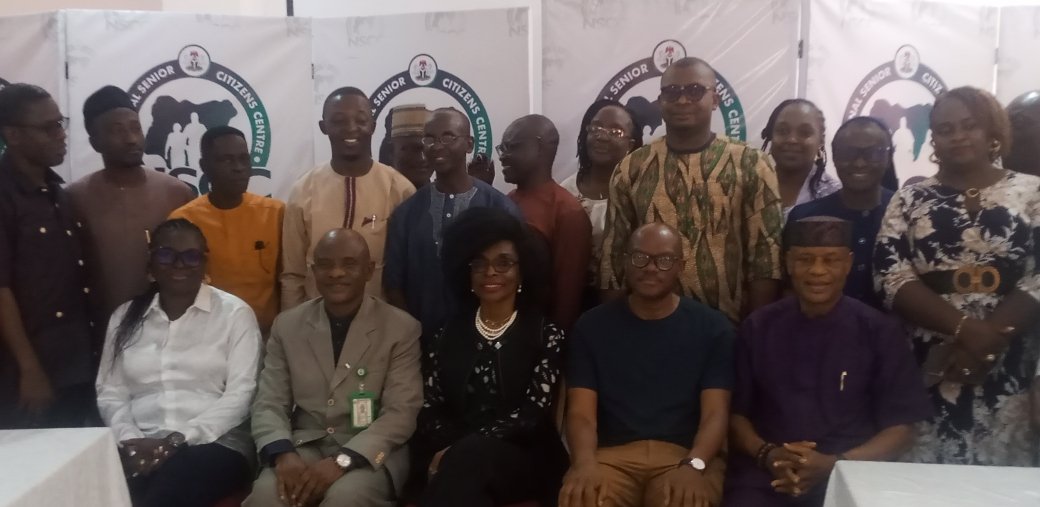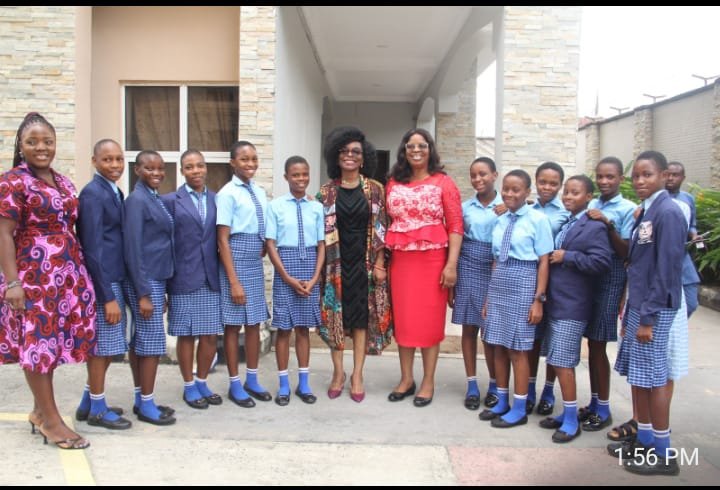
By Ameh Gabriel
Abuja, Nigeria – The National Senior Citizens Centre (NSCC) has commenced training for the second cohort of participants in its Quality Assurance Assessor Certification in Geriatric Social Care. This was disclosed by the Director General of the Centre, Dr. Emem Omokaro, during an interview with journalists at the opening session of the program in Abuja.
Dr. Omokaro described the certification as a critical requirement for accrediting training providers in geriatric care. According to her, any multidisciplinary team responsible for training caregivers must include a significant number of certified quality assurance assessors.
“Caregiving is a practical skill not just theoretical knowledge,” she explained. “This program ensures that caregivers are not only trained but also assessed for competence in real-world scenarios. It emphasizes translating knowledge into hands-on capability, such as using assistive devices like wheelchairs and recognizing signs of elder abuse.”
Dr. Omokaro emphasized that the certification program, which is competency-based, involves 11 weeks of rigorous training, including eight weeks of supervised fieldwork. So far, 28 assessors have been certified, with 20 currently undergoing training in the second batch.
On the establishment of a national database for older persons, the DG clarified that the NSCC is not responsible for the National Social Register but is developing a comprehensive web portal. The portal will serve as a centralized information hub listing certified assessors, accredited training centers, trained caregivers, and their certifications.
“Our information system is designed to be a one-stop platform,” she said. “It will support training providers, track certified caregivers, and connect all stakeholders in geriatric social care across the country.”
Dr. Omokaro also discussed broader efforts to improve the quality of life for older Nigerians. She highlighted the Centre’s stakeholder engagement model, which includes older persons themselves, faith-based groups, NGOs, healthcare professionals, and community organizations.
“We’ve rolled out medical outreaches and distributed assistive devices in 13 states simultaneously,” she noted. “These achievements were possible because of the strong consultative forums we’ve built in every state.”
She further disclosed that more states are now domesticating the NSCC Act, enabling the establishment of State Senior Centres and the development of aging policies tailored to local contexts.
On elder abuse and justice, Dr. Omokaro explained that while the NSCC is not a prosecuting agency, it collaborates with institutions such as the National Human Rights Commission and NAPTIP to address violations of older persons’ rights.
“We’ve integrated NAPTIP’s call lines into our outreach campaigns,” she said. “When that number is called, it triggers an immediate response by their intervention squad. Cases from states like Cross River, Enugu, Anambra, and Benue have already been acted upon.”
In one disturbing instance, she recounted a case from Benue State where an elderly man was buried alive after being accused of causing a lightning strike. “These tragic events underscore the urgency of our elder justice initiatives,” she stressed.
The NSCC has also launched educational campaigns, including the creation of Elder Justice Clubs in schools to promote respect and advocacy for the elderly among young Nigerians.

“In addition to policy work and caregiver training, we are empowering older persons to speak for themselves,” she added. “Veterans now serve as goodwill ambassadors for elder justice and age-friendly environments.”
Dr. Omokaro called on the media to join the fight against elder abuse by promoting awareness and publicizing the support hotlines.
“The help available isn’t just about redress—it’s about saving lives,” she concluded.





